Abstracts of the XXXIII International Congress of the World Federation of Hemophilia
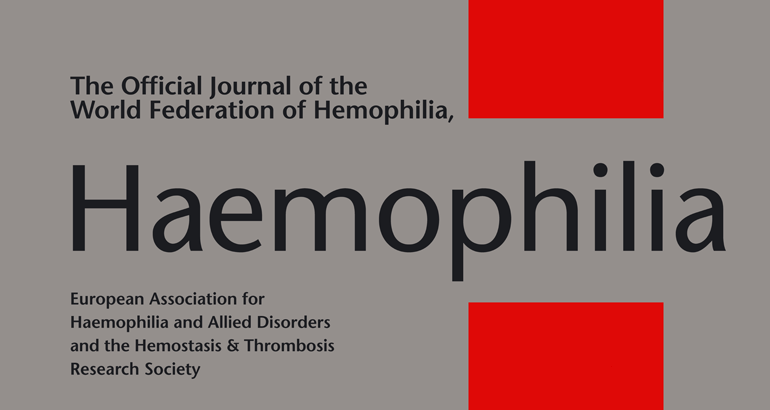
The freely available special Haemophilia Journal supplement dedicated to the WFH 2018 World Congress Glasgow (May 2018, Vol 24, Issue Supplement S5 Pages 1–218) features abstracts of many of the posters presented at the Congress, including Late-Breaking Abstracts and those selected for presentation as Free Papers.
Inhibitors in Hemophilia: A Primer
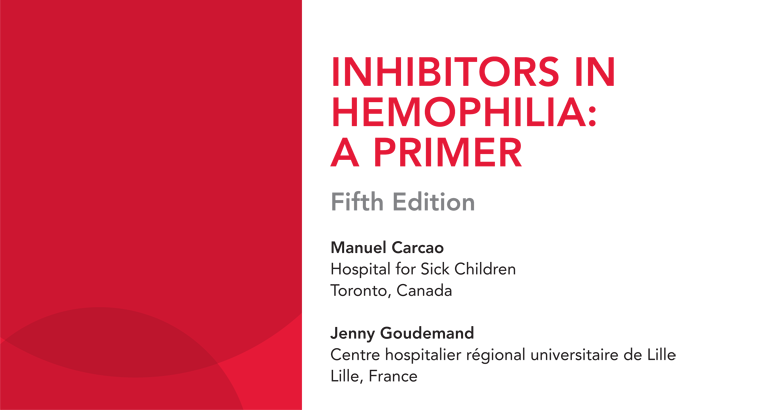
This resource has also been translated into the following languages, with permission from the WFH, by NMOs: Traditional Chinese Inhibitors are a serious complication of hemophilia caused by an immune response to clotting factor concentrates. Treatment of inhibitors is one of the biggest challenges in hemophilia care today. This primer explains our current understanding of […]
Report on the Annual Global Survey 2017
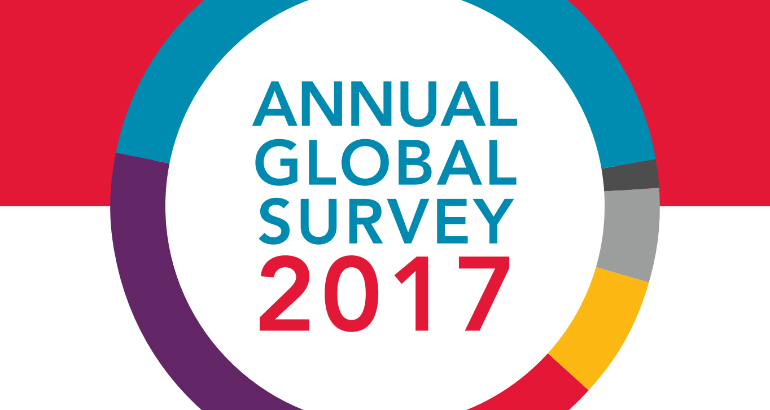
Compiled annually, the Annual Global Survey (AGS) provides demographic and other data on people with hemophilia, von Willebrand disease, other rare factor deficiencies, and inherited platelet disorders throughout the world.
Updates on Clinical Trials of Gene Therapy in Hemophilia
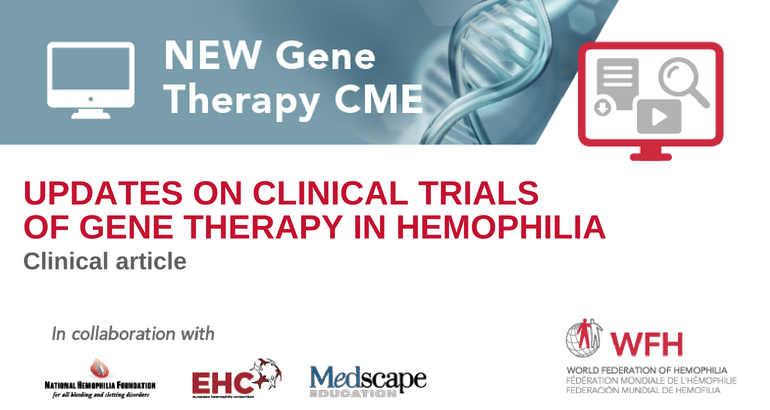
The fifth and final activity in the Clinical Advances in Gene Therapy for Hemophilia CME curriculum, Updates on Clinical Trials of Gene Therapy in Hemophilia, is a clinical article. Follow Thierry VandenDreissche (Brussels, Belgium) as he takes a deeper dive into the advances made during the recent early phase gene therapy clinical trials in hemophilia […]
Why Gene Therapy for Hemophilia? Exploring the Challenges of Current Therapies
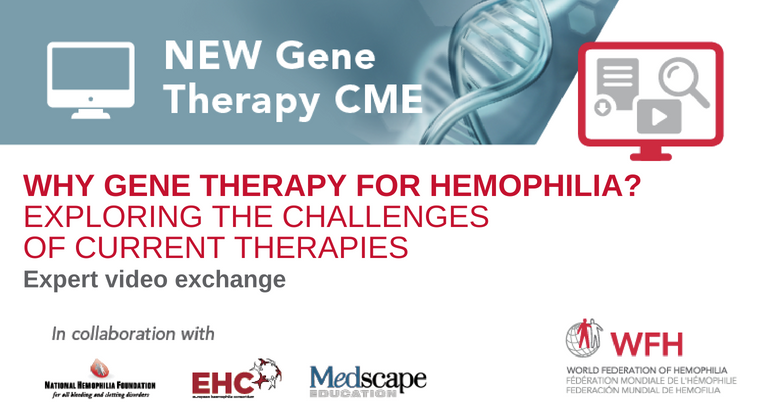
Re-certified for CME credits, to Sept 6, 2020! The fourth activity in the Clinical Advances in Gene Therapy for Hemophilia CME curriculum, Why Gene Therapy for Hemophilia? Exploring the Challenges of Current Therapies, is an expert video exchange on gene therapy in the context of therapies currently available for hemophilia around the world. Watch as […]
The Science of Gene Therapy for Hemophilia
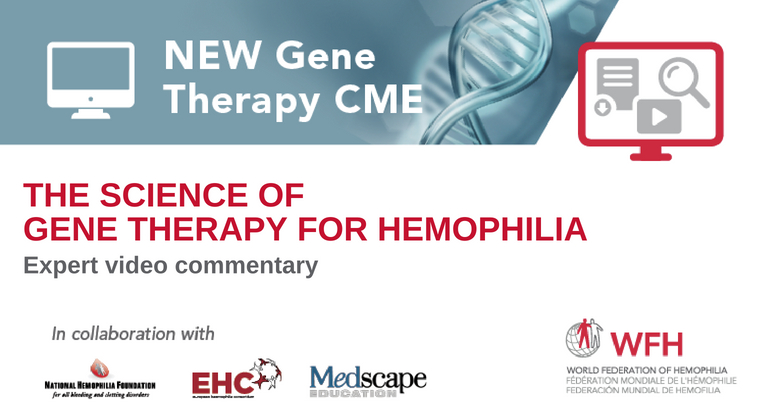
Re-certified for CME credits, to Sept 6, 2020! The third activity in the Clinical Advances in Gene Therapy for Hemophilia CME curriculum, The Science of Gene Therapy for Hemophilia, is an expert video commentary on the vector technology behind gene therapy in hemophilia. Watch as Glenn Pierce, WFH Vice President Medical, examines early clinical trials, […]
Abstracts of the WFH 15th International Musculoskeletal Congress

Abstracts and program information from the 15th International Musculoskeletal Congress held in Seoul, Republic of Korea, May 5-7, 2017.
Abstracts of the WFH 14th International Musculoskeletal Congress
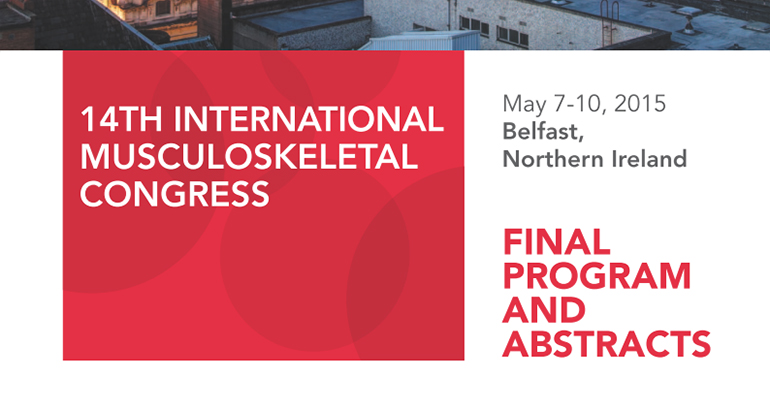
Abstracts and program information from the 14th International Musculoskeletal Congress held in Belfast, Northern Ireland, May 7 – 10, 2015.
Abstracts of the WFH 13th International Musculoskeletal Congress
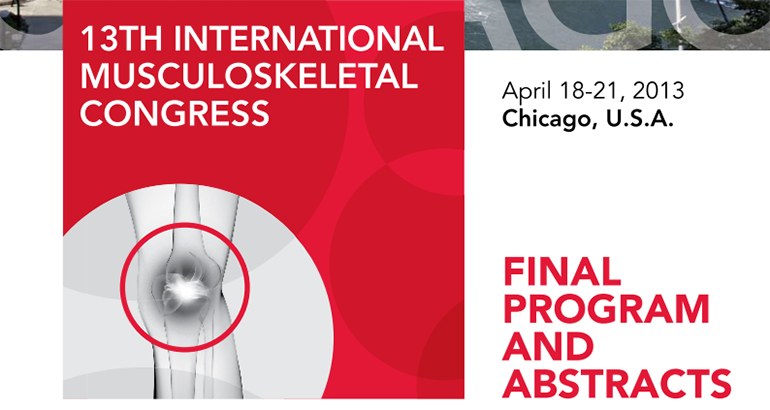
Abstracts and program information from the 13th International Musculoskeletal Congress held in Chicago, USA, April 18 – 21, 2013.
Gene Therapy: Past, Present, and Future
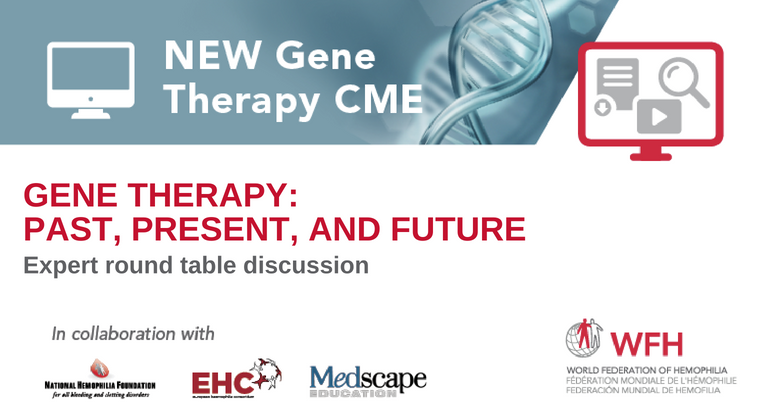
The second activity in the Clinical Advances in Gene Therapy for Hemophilia CME curriculum, Gene Therapy: Past, Present, and Future, is a round table video discussion of the evolution of gene therapy in hemophilia. Watch three experts reflect on the development, ongoing research, and current and future uses of gene therapy in hemophilia. A transcript […]
Test Your Knowledge of Gene Therapy in Hemophilia
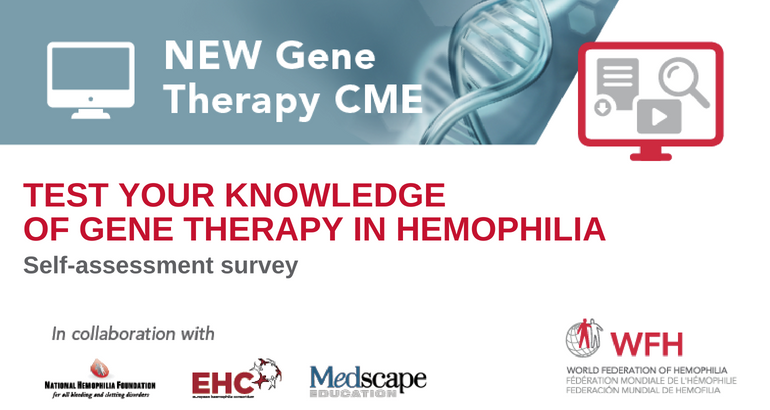
The first activity in the Clinical Advances in Gene Therapy for Hemophilia CME curriculum, Test Your Knowledge of Gene Therapy in Hemophilia, is an educational self-assessment survey. The questions allow you to see how much you already know about gene therapy in hemophilia and the answers explain the essential information required for a fuller understanding. […]
Guide for the Assessment of Clotting Factor Concentrates
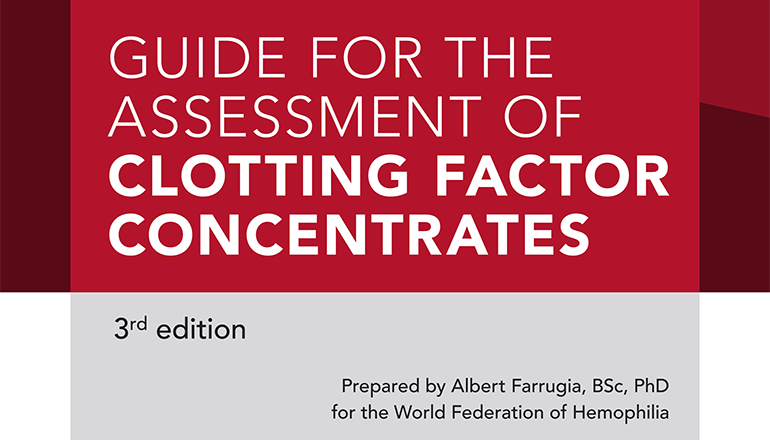
The purpose of this guide is to inform and facilitate the selection and purchase of therapeutic products for the treatment of hemophilia. It discusses the factors that contribute to the quality, safety, and efficacy of hemophilia treatment products and, in particular, the provisions made for ensuring that these products are free of viruses. It covers […]
